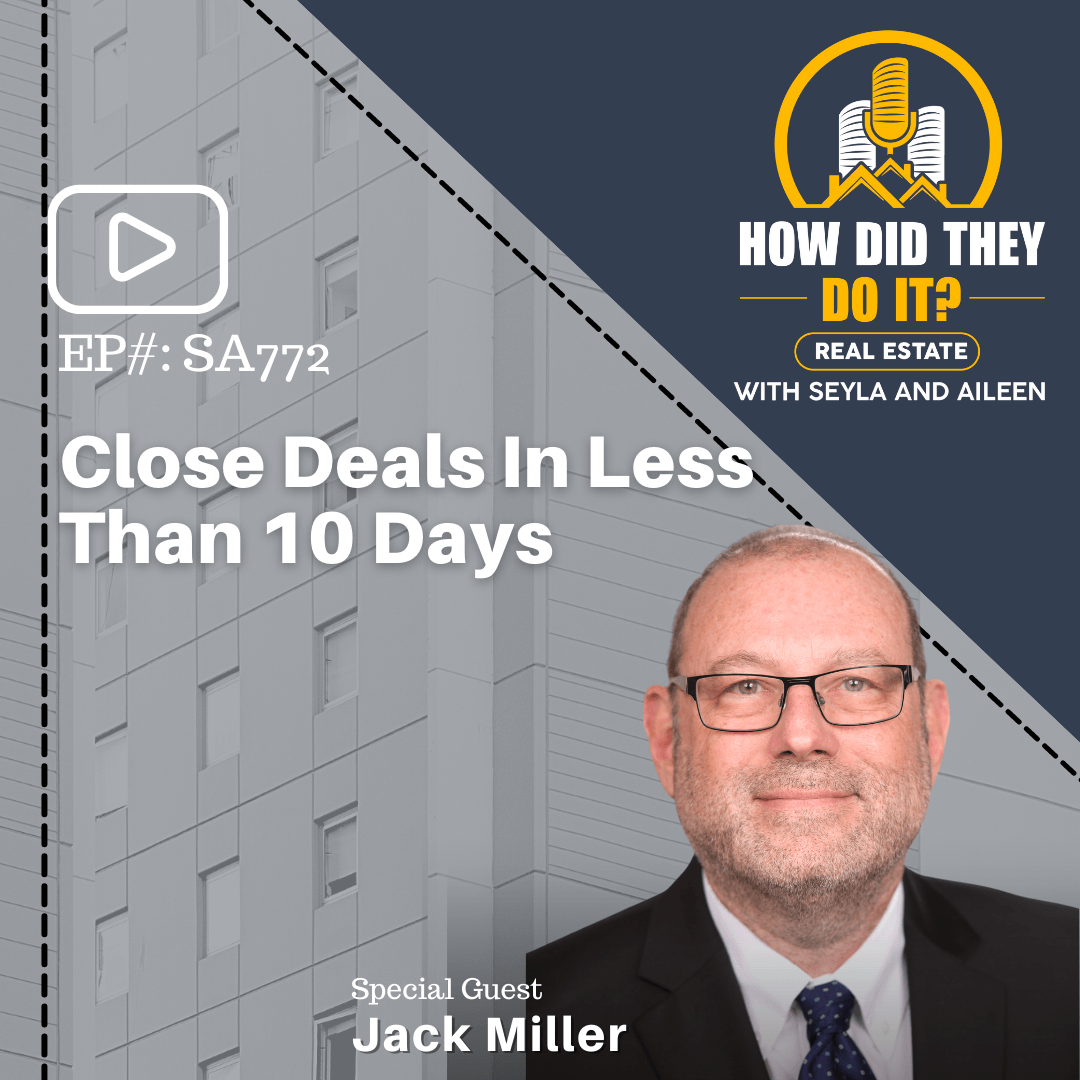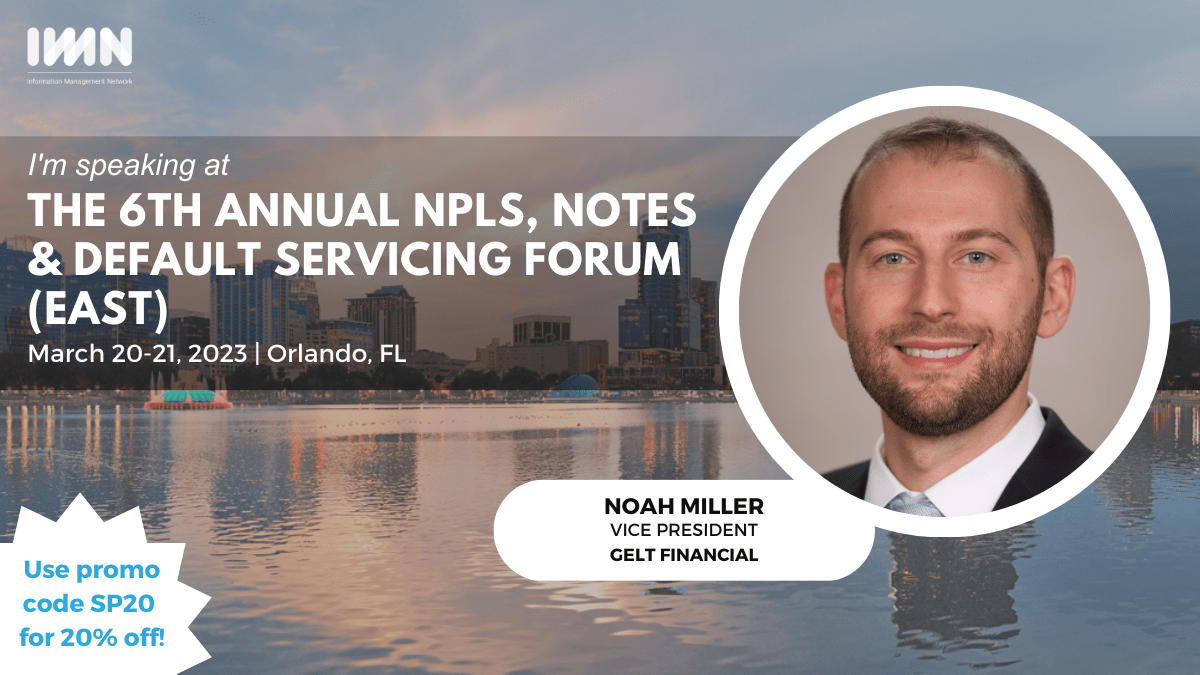Jack Miller asks whether you are cut out to be a commercial or residential mortgage broker. What skills do you need? Do you have them?
“Hello, this is Jack Miller at Gelt Financial. I hope you’re having a fantastic day. I’m making this video, and I’m calling it “Are you cut out to be a commercial mortgage broker?” But the truth is, all the skills for a commercial mortgage broker, most of them are residential. It’s interchangeable. So, here’s the skills that I think people need to be a commercial mortgage broker. Let me know if you have them. I’m curious.
So, I’m dividing it into two areas. One is technical skills; one is the personality. So, number one, or really this is not an order of importance, it’s an order of when I wrote it down. Then one of the main things you need to be is dependable. Dependability is critical. People are coming to you, whether it be a refinance or purchase. They’re coming to you for an important, one of the most important decisions and one of the most important transactions they are going to do in their life is borrowing money. It’s not something people, most people do every day. Maybe they’ll do it once every ten years, once every 30 years, once every five years. But you need to be dependable. And what I mean by that is, and that’s sort of tied into a few of them, you need to return calls, you need to return emails. Don’t be a goofball. If you don’t know an answer, tell them you don’t know. There’s a million questions that earn Bob with it. So, if they ask you a question and you don’t know it, tell them. So, dependability is critical. Number one, dependability and be there. And even— I see a lot of people get in the mortgage business. They’re in it for three months; they’re out of it for a year. They come back; they go in it out. That’s not dependable. So, people want to deal with someone who’s rock-solid and a 100% dependable. You got to be dependable.
Another thing is you got to have great follow-up. There’s a lot of things in a lot of ways we communicate today through email, over the phone, text messages, LinkedIn, instant message, WhatsApp. Have great follow-up. Keep yourself organized through a CRM or through Outlook. And today it’s easy. There’s all kinds of tools. It’s not like when I started years ago that there was really nothing to keep you organized. But make sure you’re organized because, again, a lot of moving pieces, a lot of deadlines, a lot of information. You got to be organized. If you’re not organized and you drop the ball, you’re in trouble. So, all the things that I’m telling you, the personality traits, really you need to be in life anyway. Be dependable. Don’t be a goofball. Be organized. Call people. Have great follow-up. Another one, be honest. Don’t B.S. borrowers. Don’t. If it’s a tough deal, if you don’t think you can do it, set the expectations up front on the very first goal. If they call you and you don’t think you can do it, don’t sugarcoat things. I tell them right up front, it’s really hard. I don’t know if we can do this one, but always be honest. And if there’s bad news that you have to get out there, get it out right away. Good news can wait. Good news can wait, but bad news get it out right away. And be a 100% honest. Don’t try to sugarcoat things. If things are challenging or whatever happens, happens in life. It happens all the time. Be straightforward with them.
The other one, I call it my “don’t be a goofball.” So, I’m on the phone the other day with the mortgage broker, and the guy is using every foul language and curse word around. I’m not going to repeat them, but he certainly was not professional. He struck me as someone who just, and he probably was a nice guy, very nice guy, and I’m not making a comment about using certain language or not, but he struck me as someone who was, you know, out talking to his buddies at the bar, coming from a football game. When you’re talking to a professional, you know, don’t be a goofball. Use professional language. If you say you’re going to call someone at 3 o’clock, call them at 3 o’clock. Don’t send me a dirty joke or something off-color. So don’t be a goofball. You’d be amazed at the goofballs out there who try to succeed. You can define your own goofball. Everyone has a different definition, but there’s a lot of them out there. Again, it could be a goofball offline or when you’re not working, but people again, they’re depending on you for a big life decision and a big financial transaction term. Don’t diminish that transaction, whether they’re borrowing fifty thousand or five million dollars. It’s a huge deal to them and they want someone who’s going to be professional. I don’t know if anyone watches “Curb Your Enthusiasm”, but there was a great scene in where Larry David, who’s the star of it, was my all-time favorite hero, by the way, and I just love him. It’s my favorite show. He hires an attorney to do his state work. He meets the attorney on, oh, I’m sorry, it wasn’t Larry David. Ed Asner, who was on the show, played a character, hires an attorney to do estate work. Larry David, it’s Larry David’s show. I’m getting the story a little backward, but anyway, he shows up at the guy on his office, and it was casual Friday, and Ed Asner says to the guy, “I don’t want to hear casual Friday. What I’m asking you to do is important to me. I want someone to be on top of their game.” Now, it’s all right to be casual Friday. You get the point. Don’t be a goofball. Be on top of your game.
Another key aspect to be in the mortgage business is to learn to look at things through somebody else’s lens, not just your lens. Look at it. You have to look at it through a lot of people’s lens because in the mortgage business, you’re a combination. If you’re a loan officer or a mortgage broker, I always say you’re two things, and I’ve been doing it a long time. I’m 58. I started decades and decades ago. I’m embarrassed to tell you how long I’ve been doing it. You’re a combination of an orchestra leader. If you picture the orchestra leaders, the maestros, they had those little sticks, and they’re very delicately doing this. I don’t know what it means, but they’re effectively instructing in a gentle way 30, 20, a hundred people to do what they’re supposed to do. And a good mortgage broker does that. He needs the borrower to do what he’s supposed to do. He needs to get the appraiser, the title company, the attorneys, the underwriter, the processor. There’s a lot of people, five, ten people in each transaction. And your job as a mortgage broker is to orchestrate everyone to do what you want to do in a gentle, delicate way. You have to get them on your team. This is a huge part of really life. You need to have a personality where it lists people to be part of your team, to get them to do what you want them to do, which is cross the finish line with the goals that you have in mind.
But you also need to be the steamroller—driver. So, you need to be the orchestra guide, very delicate, very gentle, but there’s times in life, and this has nothing to do with being a mortgage broker, but it’s important. The steamroller guy, you know, when they’re paving the cement, he comes down with this big truck with the steamroller, and he rides over everything in a very forceful way. If there’s a phone there, if there’s someone’s glasses or whatever it is, he rides over it like a bulldog. So, you need to have both skills, but it’s always in order to get the borrower’s loan done. Sometimes you need to be the orchestra stream leader who orchestrates the appraiser and the title company, the underwriter and the lender to meet their goals, your goals on your timeline, not their timeline. But sometimes you need to be the steamroll guy, and it’s a hard balance, but you need to be both. But you need to also look at things through other people’s lens, which I’ve learned, and I struggle with it. A lot of people in life don’t know how to do this or they can’t do it. So, if you have a deal and you’re a mortgage broker, for example, and you’re sending it to a company like Gelt Financial, you need to look at it from our point of view. If you want to be effective, you don’t have to, but if you want to be effective, what you should do is say, “How is this deal going to look to somebody else? Am I presenting it in the possible light or is the lender or the underwriter going to say this is too risky?” or whatever it may be.
So, you need to have that capability not just with the lender and the investor, but you need to look at the deal from multiple lenses, from the appraiser’s lens, from the title company’s lens, from the attorney’s lens, from the underwriter’s lens, from the borrower’s lens. That’s critical, from the Realtor’s lens, from your referral sources. So, look at people through their— or look at situations through their lens. Not just your lens. Another critical thing, another good thing that you need to do is associate yourself with great people. If you were the best loan officer, the best mortgage broker in the world, but you’re using lousy title companies, or lousy appraisers or whatever lousy, you’re the one who gets the blame. You’re the one who will have the stigma. You know, I used to have a sign in my office years ago. I don’t know what happened to it, but it basically said, you can go to a restaurant a hundred times, get a hundred great meals, but if you get one bad meal, that’s what you’re going to talk about, and that’s the way it is. So, you need to have the best possible team that you can do.
Again, that team is appraisers, the title company’s attorneys, lenders, processors, underwriters, home inspectors, realtors. The team is encompassing, but you need to be able to put a great team together, all orchestrated with the single goal to make the deal go as smooth as possible. And all you have to be looking through their lens. You have to be the orchestra leader; you have to be the streamroll driver—all of these together. So, there are a lot of stuff going on here, and really all of this stuff has nothing to do with the mortgage business. It’s successful in life; it’s in business. A couple of other things you need to do, I think to do is you have to have a basic understanding of financial statements, business, and investments. You should be able to look at a profit and loss statement of a business or a rent roll or an income and expense statement of an apartment building depending on what you’re doing. If you’re residential, you may not need this, but if you’re commercial, you do. But you should have a good understanding, more than good, an exceptional understanding of financial statements, business in general, and investments. And you get that by learning it—invest in it. You know, if you don’t have a good understanding of financial statements, I get it. Most people don’t—you don’t take the time to learn. Watch YouTube every night for a half-hour on it. You also have to have a good understanding of accounting and legal—again, if you don’t know, if you don’t have a good understanding of accounting and legal matters, take every day a YouTube or take an online class because the reality is a lot of what we do is business, investments, financial statements. You should be able to understand those clearly. I’ll give you a perfect example that happened to me an hour ago. Somebody called me up; they’re buying an RV park; they’re looking for financing. I asked them the—and this is a buyer, so it’s a little different, but you get the point. I asked them what the gross income was and what the NOI is, and he had no concept of what an NOI was. He sent me his expenses, and of course, he’s buying the realtor. The realtor left off any management fees. The realtor left off a ton of fee, a ton of expenses that he’s gonna have. It was clear to me this buyer had no idea what he was doing, zero. He trusted what a realtor said. You as the mortgage broker or a loan officer have to have an understanding. You need to have a good understanding of financial statements, business, and investments and learning—learning, read books on it. It’s easy today.
You also have to understand risk. You have to put yourself—in again, if you’re a mortgage broker, you put yourself in the lender’s perspective. So, you have to have a good understanding of risk and reward. Again, if this comes back to put yourself in somebody else’s shoes and look at things through their lens. So, you have to understand risk because as a mortgage broker or mortgage banker, whether it be residential or commercial, you’re asking somebody else to take risk. You’re asking a borrower to take risk by borrowing money, and you’re asking a lender to take risk by lending them the money. So, you have to have a good understanding of risk and, again, a good understanding of business. The last two, and I apologize, and I dragged on this a little bit longer than I expected, understand marketing. You know, today we live in a digital world. When I started, I used to drive around to realtors and get business, but those days—maybe people do it, but most of it, its digital marketing. So, you have to have a good understanding of marketing, how to get deals because you can have the best knowledge about everything, be the best manager, but if you don’t have the ability to bring in deals and marketing, you’re not getting referrals, you’re washed up. So, you have to have a good understanding of marketing and have a good understanding of technology because we live in a technology-driven world. The last thing is, and this is really critical, they’re all critical but this is critical, you have to be able to change and adaptable. You know, I’ve been in business. I started my company, Gelt Financial, February 1st, 1989, a long time ago, 31 years ago, and it, the business changes every three or four or five years. The truth is, there are almost, I don’t wanna say they’re none, but they’re almost no companies around like us today who have been around for more than ten years because people are not able to adapt and change with the market.
I’m making this in the Corona time, and it’s a perfect example. You, whatever business you’re in, you have to be able to change and you have to be able to adapt. Certain people are not good adapters, certain people are great adapters, but I think it’s critical if you really want to be a success, you need to be able to adapt, and you need to be able to change, and you need to be able to embrace it. So that’s what I got to you today. These are what I think, this is, I’m labeling it, “Are you cut out to be a commercial mortgage broker?” But it could be a residential mortgage broker, and in thinking about everything I’m saying, it’s really in business for yourself and take control of your own destiny. Any questions, let me know. You can certainly reach us at Gelt Financial. We’re doing non-bank loans all over the country, commercial loans, real estate loans. We’re real estate investors with our motto is, “When your bank says no, we say yes!” Check us out at geltfinancial.com. Like the YouTube, like the video, like the channel. If you hit the buzzer or the belt, as I post these, you’ll get notified of them, and leave your comments. If you like it, if you don’t like it, leave your comments. I could take the bad stuff as well as the good stuff. Take care, have a great day, and I want you to be a success.
You know, success never came easy for me. In fact, I pulled up today; it’s July 3rd. We’re in a seven-story office building. There were two cars when I pulled up at 8 o’clock in the morning. One was mine; one was one of my sons. I took a picture of it. You’ve got to work hard today. You know, I’m guessing there’s 200 people who are working here. They took the day off. But you know what? We’re working at Gelt Financial because unfortunately, I wasn’t blessed with the ability for things to come easy for me. I have to work three times as hard, and I’m not smarter than anyone else. I’m more of an idiot than anyone else, and my wife and anyone who knows me will tell you that. I can give you a hundred stories why I’m an idiot, but I work hard and I can adapt to change. So again, work hard. It’s a fantastic career. I love the mortgage business. I’m an advocate of it. I want you to succeed. I want you to do business with us if you’re thinking about it. Sign up as a broker, go to our website under mortgage broker, put your name and email and phone number in there, and we’ll send you a bunch of good stuff, and we’ll keep you updated on our programs. Most important, have a great day. We’re all on this earth for a very short period of time. Make use of every day, every minute, every hour. Take care, have a good day, and God bless you.”
Category: Mortgage Brokers
Tag: pro tip

























